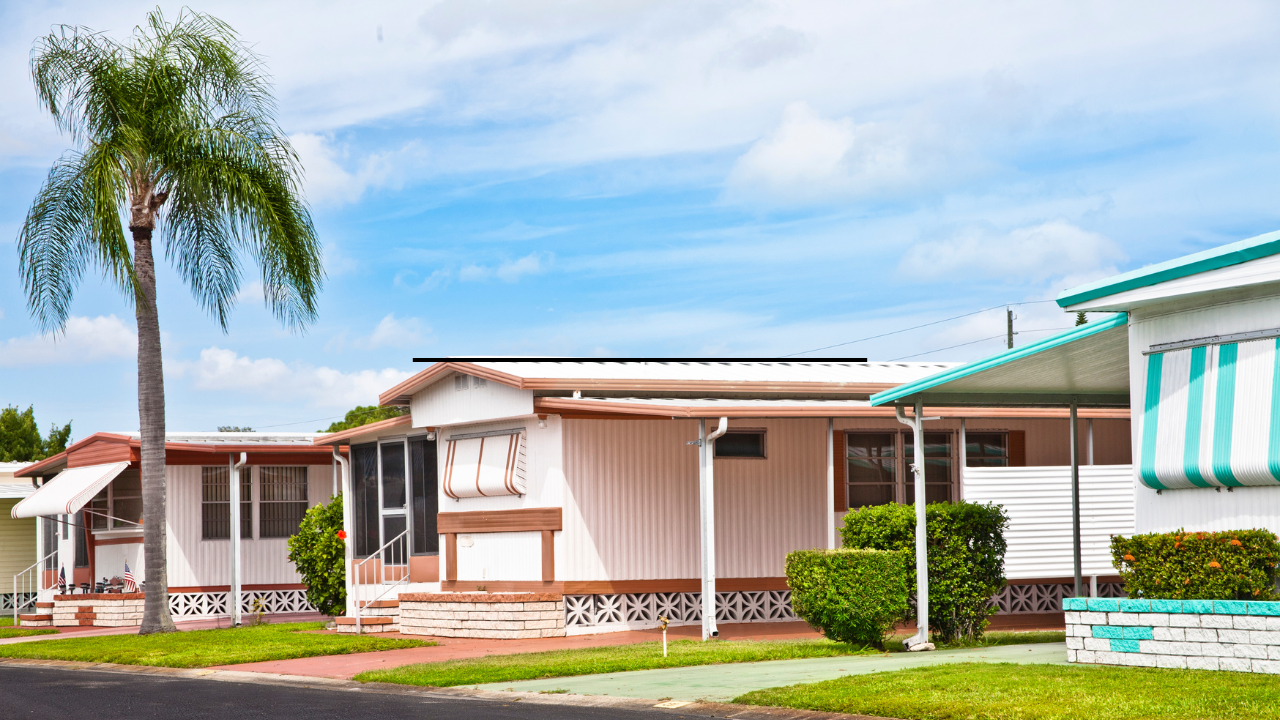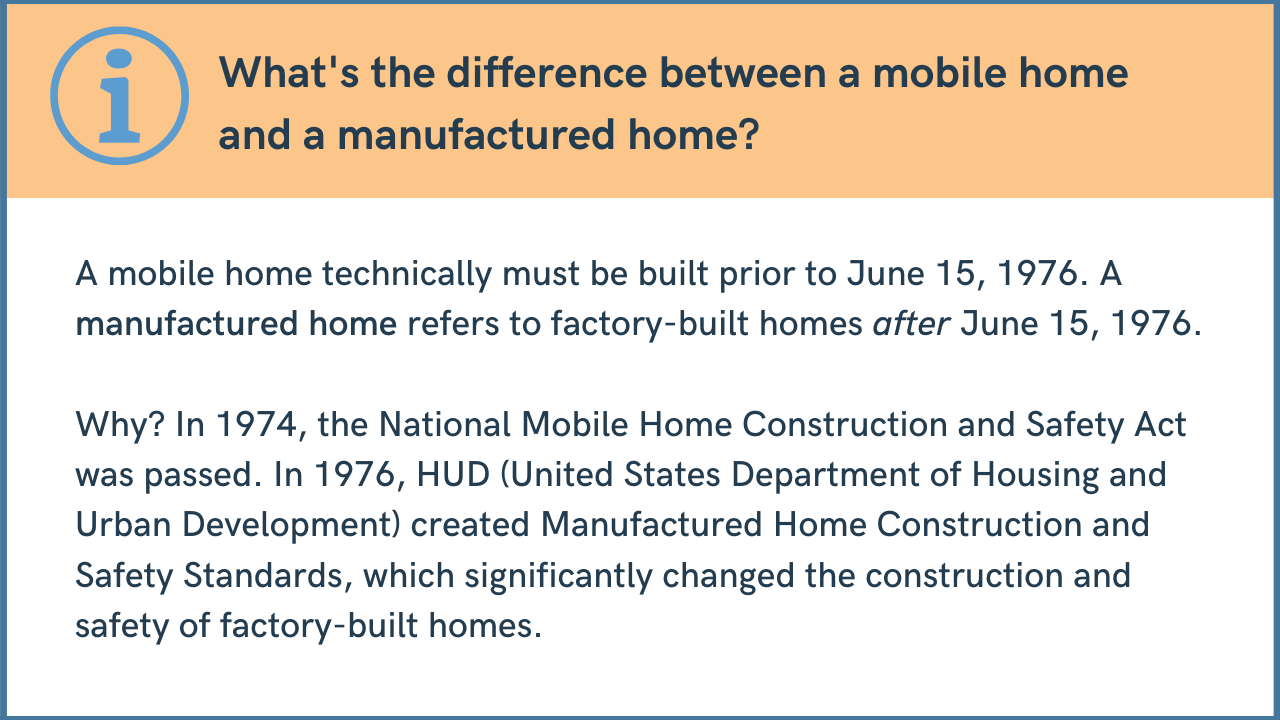What You Need to Know About Mobile Home Inspections


So you're a home inspector and want to start inspecting mobile and manufactured homes. Great!
First, you need to know that a mobile/manufactured home inspection is quite similar to your run-of-the-mill residential home inspection. As a home inspector, you'll be able into jump into mobile home inspection with no problem.
But there are some key differences to be aware of when inspecting mobile homes. In this article, we'll walk you through the basics of what you need to know to get into mobile/manufactured home inspection.
While the inspection process for mobile homes might be similar to your average home inspection, there are some key differences to be aware of.
As the name implies, mobile and manufactured homes (often referred to as factory-built homes or trailers) are built to be moved at least once, from the factory to the owner's property.
Because of their purpose, mobile and manufactured homes are often built with different materials than stick-built homes. They are permanently attached to a steel chassis, which acts as a floor support system. Additionally, mobile homes are not permanently attached to the site they sit on (even though they are anchored).
Mobile and manufactured homes are also smaller and have different building regulations and codes than stick-built homes. Why is this important to know? As a home inspector, this will change your inspection.
 Factory-Built Homes Are More Easily Damage
Factory-Built Homes Are More Easily DamageFactory-built homes are particularly susceptible to damage.
Because manufactured homes aren't usually built on a permanent foundation, they are less stable. Since DIY repairs are pretty common, be sure to check for unusual construction.
Why is this important? Basically, severe weather events can be devastating to poorly constructed mobile homes.
It's also important to check for damage caused during transportation. Since manufactured homes are built in a factory and not on-site, parts of the home like the roof and the exterior wall sheaths may be damaged before the home even reaches its permanent location.
It's common for mobile homes to have DIY additions and fixes.
Because mobile homes are usually built small, it's pretty common for homeowners to build their own additions. But often, the structure and foundation of the original factory-built home aren't enough to support additions. According to Mobile Home Living, all additions must have their own foundation so they can shift independently of the original structure. As an inspector, it's important to check the foundation and supports of additions to make sure they are safe and properly built.
Homeowners may also install woodburning stoves or heating structures that aren't suitable or safe for the home. Keep an eye out for overly large or improperly installed appliances.
Be on the lookout for DIY solutions to electrical systems as well. Older mobile homes in particular tend to have aluminum wire and lack GFCI protection, both of which are dangerous to anyone living in the home. Inspectapedia's Building Codes and Standards for Mobile Homes is a great resource to reference for any questions about how manufactured homes should be built.
It Might Be Harder to Find and Access Systems
It goes without saying that mobile homes are relatively small. It might be more difficult to access systems in the crawl space and the attic than it would be in a stick-built home.
While this isn't a huge hindrance, it's important for a few reasons.
In the checklist below, you'll see that our mobile/manufactured home inspection checklist is pretty similar to our residential home inspection checklist. But there are some specific aspects to pay attention to when you're inspecting a manufactured home.
In manufactured homes, inspectors should pay special attention to electrical, as older mobile homes tend to have electrical problems due to a lack of standards and regulations at the time they were built.
Due to their size, instability, and building materials, manufactured homes are also at a larger risk for storm damage and fire damage. Pay special attention to heating systems and foundation/structure in your inspection.
| Mobile/Manufactured Home inspection checklist |
| Water Damage |
| Floors, foundation, structural support, and/or vapor barrier |
| Heating systems and fire safety |
| Electrical wiring, specifically GFCI protection |
| Proper electrical grounding |
| Ducts |
| Insulation |
| Cooling systems and AC units |
| Proper installation of hurricane tie-downs/ straps |
| Roofs and exterior, particularly water-sealed seams |
| Crawl space |
|
Septic/sewer scope (if applicable to the property) |
| Certificate verifying the home's age |
The bottom line? Your mobile/manufactured home inspection checklist should look a bit different than what you use for stick-built homes.
You can use Spectora for your mobile home inspections. Our customizable templates can be easily tailor-made for manufactured home inspections. Or, you can add a pre-built mobile home inspection template from our community-shared template center.
Frequently Asked Questions: Mobile Home Inspection:
As a home inspector, you should charge between $250 and $400 for a mobile home inspection. While manufactured homes are small and you might think you should charge less based on square footage, keep in mind that mobile homes have additional aspects to look at over the course of your inspection, and difficult-to-access systems might add time to your inspection.
Just like stick-built homes, mobile homes don't legally require inspection. However, homebuyers should always inspect a home (manufactured or otherwise) before buying, as it will make them aware of defects and potential problems that could be costly.
No, you don't need a specific license to inspect mobile or manufactured homes, although if your state has home inspection licensing requirements in general, you will need to meet your state's licensing requirements. You should also be familiar with HUD Manufactured Home Construction and Safety Standards.
Although it's not required, a certification to inspect mobile homes could be a worthwhile investment; it will set you apart from your competition and give you credibility, both of which are useful for your home inspection marketing campaigns.
The ICA and InterNACHI both offer courses to get certified in mobile and manufactured home inspection.